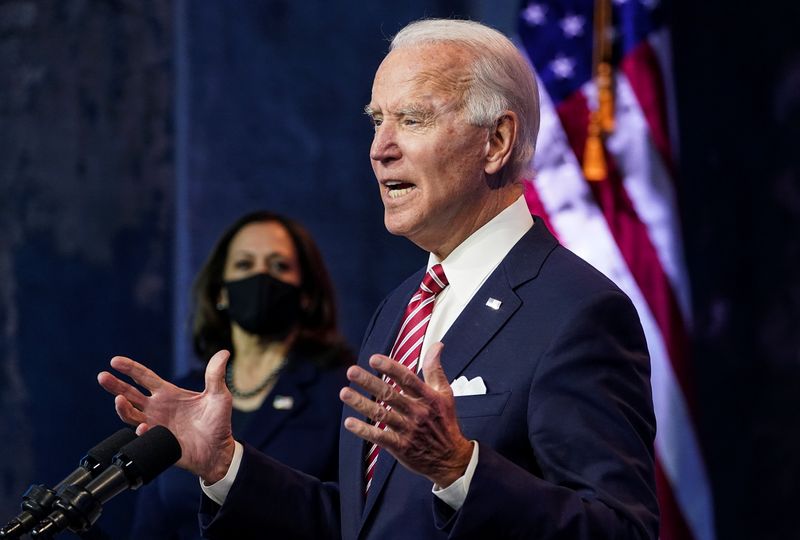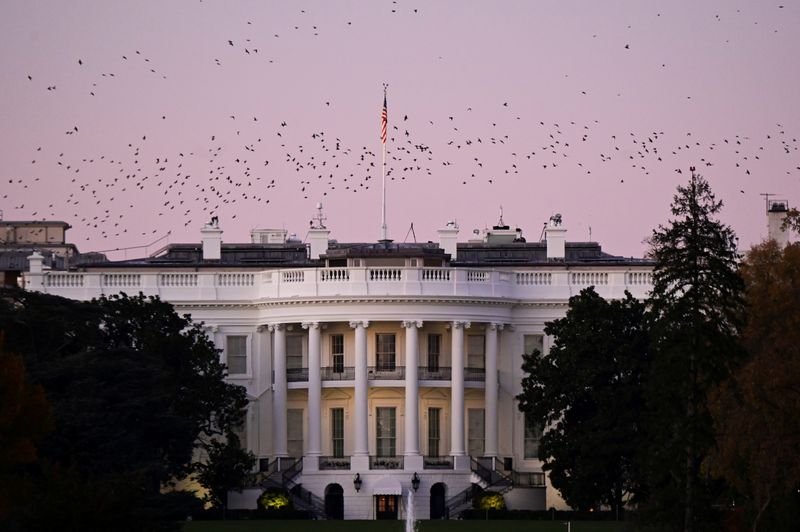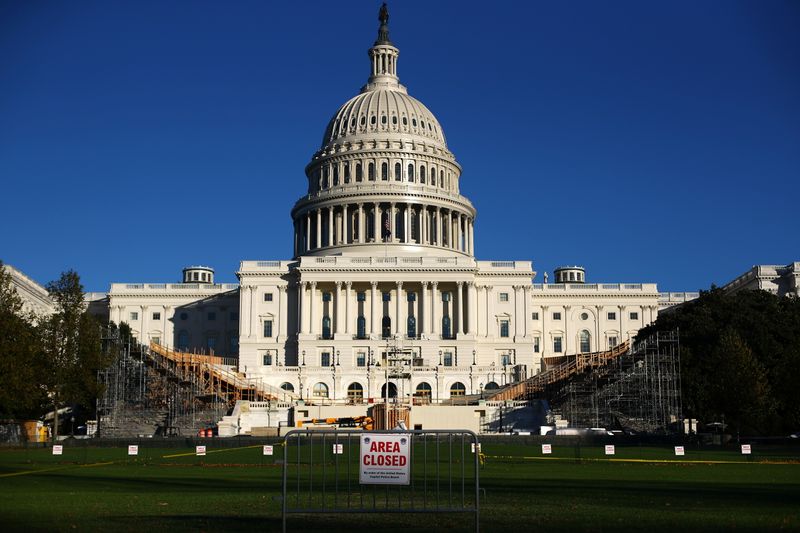WILMINGTON, Del. (Reuters) – President-elect Joe Biden’s top coronavirus advisers warned on Tuesday that President Donald Trump’s stalling of the transition could hinder the country’s pandemic response, as Trump and his allies persisted in challenging the Nov. 3 election results.
Trump’s refusal to concede has put Biden’s transition to the White House in limbo, complicating his efforts to tackle a COVID-19 pandemic that has killed more than 247,000 people in the United States and shows no sign of slowing.
In a call with reporters, former U.S. Surgeon General Vivek Murthy, who co-chairs Biden’s COVID-19 task force, said blocking Biden transition advisers from meeting with government experts could harm their ability to confront the pandemic next year.
Several doctors and nurses associations published a letter on Tuesday urging the Trump administration to share critical COVID-19 data, such as equipment inventories, medical supplies and hospital bed capacity, with Biden’s team.
Biden, a Democratic former vice president who will take office on Jan. 20, has also not been able to receive the classified intelligence briefings normally afforded a president-elect.
He met instead with his own panel of national security experts, including several under consideration for top foreign policy posts, such as former Deputy Secretary of State Antony Blinken, former deputy national security adviser Avril Haines and former U.S. Ambassador to the United Nations Samantha Power.
“You know that I’ve been unable to get the briefings that ordinarily would have come by now,” Biden said during a brief glimpse of the meeting offered to a small pool of reporters. “And so I just want to get your input on what you see ahead.”
Trump, a Republican, has repeatedly claimed without evidence he is the victim of widespread voter fraud, and his campaign has filed a flurry of lawsuits in battleground states. Election officials in both parties have said they see no evidence of serious irregularities.
Trump on Tuesday fired top U.S. cybersecurity official Chris Krebs, who heads the Department of Homeland Security’s Cybersecurity and Infrastructure Security Agency, accusing him without evidence of making a “highly inaccurate” statement that affirmed the security of the U.S. election.
Reuters reported last week that Krebs, who worked on protecting the election from hackers but drew the ire of the White House over efforts to debunk disinformation, had told associates he expected to be fired.
CLEAR BIDEN WIN
Biden won the national popular vote by more than 5.6 million votes, or 3.6 percentage points, with some ballots still being counted. In the state-by-state Electoral College that determines the winner, Biden has secured 306 votes to Trump’s 232.
In Michigan, where Biden leads by more than 145,000 votes, two Republican members of the board of canvassers in the state’s largest county, Wayne, initially voted on Tuesday to block the county from certifying its results, citing slight inconsistencies in precinct totals in the majority-Black city of Detroit.
But they reversed their decision after more than two hours of angry public comment and voted to certify the Wayne County results, with the caveat that the Michigan secretary of state conduct an audit of precinct tallies.
At a federal court hearing in Pennsylvania, U.S. District Judge Matthew Brann appeared skeptical of Trump’s request to block officials from certifying Biden’s win in that state.
“At bottom, you are asking this court to invalidate 6.8 million votes, thereby disenfranchising every single voter in the Commonwealth,” Brann said. “Can you tell me how this result can possibly be justified?”
A loss in the Pennsylvania case would deal a sharp blow to Trump’s fading chances of reversing the election outcome. To remain in office, Trump would need to overturn results in at least three of the closely contested states in unprecedented fashion, and has no apparent legal means to do so.
Pennsylvania’s highest state court rejected an appeal from Trump’s campaign in a separate lawsuit, ruling the elections board in Philadelphia, the state’s largest city, acted reasonably in keeping Trump campaign observers behind barricades and 15 feet (4.5 m) away from counting tables.
Trump supporters are also clinging to hope that recounts could reverse state results, even though experts have said Biden’s margins appear insurmountable.
Georgia is undertaking a manual recount on its own. In Wisconsin, the Trump campaign has until Wednesday to decide if it will pay the $7.9 million the state’s election commission estimated a recount would cost there.
Biden on Tuesday spoke to Israeli Prime Minister Benjamin Netanyahu, a Trump ally, as well as the leaders of India, South Africa and Chile. Biden said he had spoken to 13 foreign heads of state thus far, telling them: “America’s back. And it’s no longer America alone.”
He also filled several top positions in his White House. Campaign manager Jen O’Malley Dillon, the first woman to lead a winning Democratic presidential bid, will serve as deputy chief of staff in the Biden administration, his transition office said in a statement.
Longtime advisers Mike Donilon and Steve Ricchetti will join as senior adviser to the president and counselor to the president, respectively. Dana Remus, the campaign’s top lawyer, will be counsel to the president.
Another close adviser, Ron Klain, was already named chief of staff.
U.S. Representative Cedric Richmond, who was a national co-chair of Biden’s campaign and former chair of the Congressional Black Caucus, will vacate a House seat in Louisiana to join as a senior adviser and director of the White House Office of Public Engagement. The five-term lawmaker has experience bridging gaps between the parties, which could help Biden advance his priorities in Congress.
(Reporting by Trevor Hunnicutt in Wilmington, Del., and Joseph Ax in Princeton, N.J.; Additional reporting by Simon Lewis, Andrea Shalal, Jan Wolfe, Julia Harte, David Morgan and Daniel Trotta; Writing by John Whitesides; Editing by Colleen Jenkins and Peter Cooney)






















